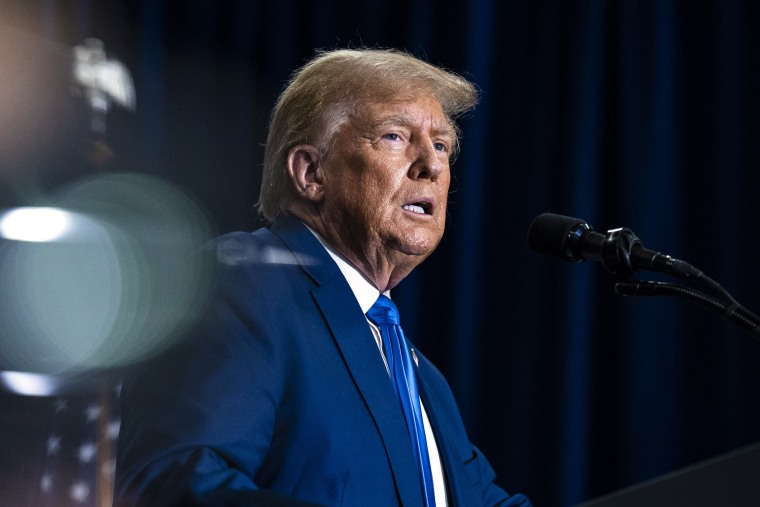A federal judge on Friday declined former President Donald Trump’s request to postpone the May start date of the trial in the special counsel’s classified documents case.
In a new court filing Friday, Judge Aileen Cannon left open the possibility of pushing back the trial date at a later date, saying she will consider the issue when the parties meet for a March 1 scheduling conference.
The decision deals a short-term blow to Trump, who had sought to push the trial back amid the cascading demands of his civil and criminal cases in New York, Florida and Washington, D.C.
Yet Cannon acknowledged “an unusually high volume” of unclassified and classified discovery and the challenge of accessing certain materials, a point that Trump’s defense has argued as they press for more time.
Due process requires more time for the defendants to review the materials, Cannon said.
The judge pushed several pretrial deadlines as the two sides negotiate the handling of classified discovery in the case.
Cannon had paused pretrial litigation on the use of some classified materials as she weighed the request from Trump over the timing of the trial. The defense had asked for an extension of several months, citing delays in accessing legal materials for the case.
Trump’s attorneys had also asked Cannon to consider their request that the trial take place after the 2024 election. The judge overseeing a separate case into Trump’s alleged efforts to hold on to power after the 2020 election denied a similar request by his defense to postpone a trial.
Cannon had announced in July that the trial would begin May 20 in Fort Pierce, Florida.
A spokesperson for Trump's campaign, Steven Cheung, cast the ruling as a victory, writing in a statement, “We look forward to the conference set by Judge Cannon for next March, where future scheduling matters, including a potential trial date, will be discussed.”
“The concerted effort by the Biden Administration to deny President Trump’s constitutional rights to prepare for trial reveal their corrupt motives,” Cheung said. “It is clearly in the best interest of Justice for President Trump to have adequate time to prepare and file motions as he works to defeat these hoaxes and marches back to the White House.”
Trump, the Republican front-runner in the 2024 presidential race, faces several criminal and civil cases and has argued for delaying the trial in Florida because of the conflicting scheduling demands.
Cannon heard arguments last week on the effort to delay the trial in Fort Pierce, roughly 65 miles from Trump’s Mar-a-Lago property, where he allegedly held on to classified materials, shared them and instructed some employees to dodge the government’s efforts to retrieve them, according to the special counsel’s indictment. An attorney for Trump participated remotely from New York, where he is representing the former president in an ongoing fraud trial.
Cannon, who was nominated to the bench by Trump in 2020, had earlier sided with the defense after prosecutors raised concerns over the fact that some attorneys had represented a swath of Trump employees and allies and were paid by a political action committee affiliated with the former president. These aides include Trump’s co-defendants in the case and employees who could become potential witnesses in the trial, raising the prospect that they could testify against the attorney’s other clients. Attorneys for the government said this represented a conflict of interest.
Special counsel Jack Smith charged Trump with mishandling classified documents after he left office, alongside two employees at Mar-a-Lago. The former president has pleaded not guilty to the 40-count indictment. The employees, Walt Nauta and Carlos De Oliveira, have also pleaded not guilty to the charges against them.

